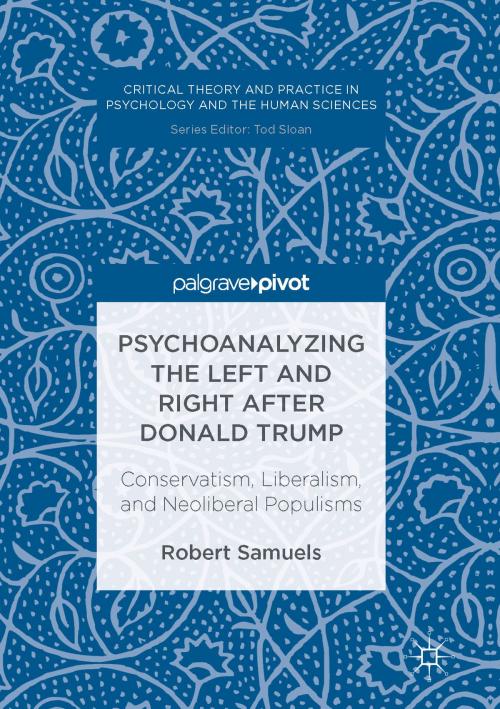Psychoanalyzing the Left and Right after Donald Trump
Conservatism, Liberalism, and Neoliberal Populisms
Nonfiction, Health & Well Being, Psychology, Psychoanalysis, Social & Cultural Studies, Political Science, Politics, History & Theory| Author: | Robert Samuels | ISBN: | 9783319448084 |
| Publisher: | Springer International Publishing | Publication: | October 7, 2016 |
| Imprint: | Palgrave Macmillan | Language: | English |
| Author: | Robert Samuels |
| ISBN: | 9783319448084 |
| Publisher: | Springer International Publishing |
| Publication: | October 7, 2016 |
| Imprint: | Palgrave Macmillan |
| Language: | English |
This book outlines a new model for global social justice movements that is based on Freud and Lacan’s central insights regarding the unconscious, repetition, drives, and transference. Since most of our current social issues are global in nature, Bob Samuels convincingly argues that we need a global solution, but that global solidarity is blocked by narcissistic nationalism and the capitalist death drive. In examining contemporary social movements for global justice, Samuels articulates a comprehensive theory of non-pathological social solidarity, and argues that in the age of multinational corporations and global climate change, we need a new model of global justice and government that requires an understanding of analytic neutrality and free association. This book uses psychoanalytic theories and practices to explain how someone like Trump can rise to power, and explores why liberals have failed to provide a convincing or effective political alternative. It will be compelling reading to students and teachers in a range of psychological and political disciplines, and to anyone interested in psychoanalysis and current politics.
This book outlines a new model for global social justice movements that is based on Freud and Lacan’s central insights regarding the unconscious, repetition, drives, and transference. Since most of our current social issues are global in nature, Bob Samuels convincingly argues that we need a global solution, but that global solidarity is blocked by narcissistic nationalism and the capitalist death drive. In examining contemporary social movements for global justice, Samuels articulates a comprehensive theory of non-pathological social solidarity, and argues that in the age of multinational corporations and global climate change, we need a new model of global justice and government that requires an understanding of analytic neutrality and free association. This book uses psychoanalytic theories and practices to explain how someone like Trump can rise to power, and explores why liberals have failed to provide a convincing or effective political alternative. It will be compelling reading to students and teachers in a range of psychological and political disciplines, and to anyone interested in psychoanalysis and current politics.















